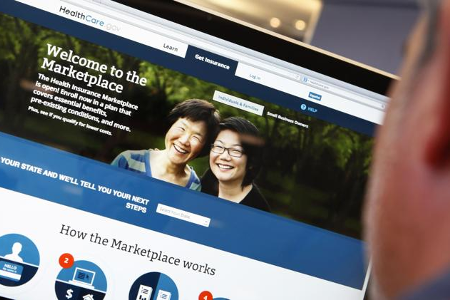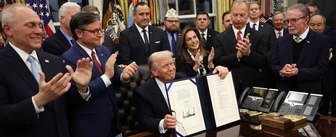Americans tend to say that health insurance subsidies should be available on federal exchanges, and most support the idea of subsidies in principle
What is a state health care exchange? This is at the core of two recent contradictory Appeals Court rulings on the Affordable Care Act, also known as Obamacare. The law calls for state exchanges, but when a majority of states did not set up those exchanges, most participants have ended up receiving coverage (and government subsidies, when needed) through the federal exchange, healthcare.gov.
Those subsidies have now been challenged by opponents of the health care law, who argue that only those who bought coverage from a "State" exchange are eligible for subsidies. If the challengers win, people in 36 states would lose those government subsidies they received to help pay for their health care coverage, effectively gutting the law.
Last month, a panel of the D.C Federal Appeals Court ruled that the law only allows those who bought coverage from "State" exchanges to receive subsidies, while a panel from the 4th Circuit ruled exactly the opposite, saying that the federal exchange was in effect acting for the states that did not set up their own exchanges. Just 38% of people in the latest Economist/YouGov Poll say they have been following this story.
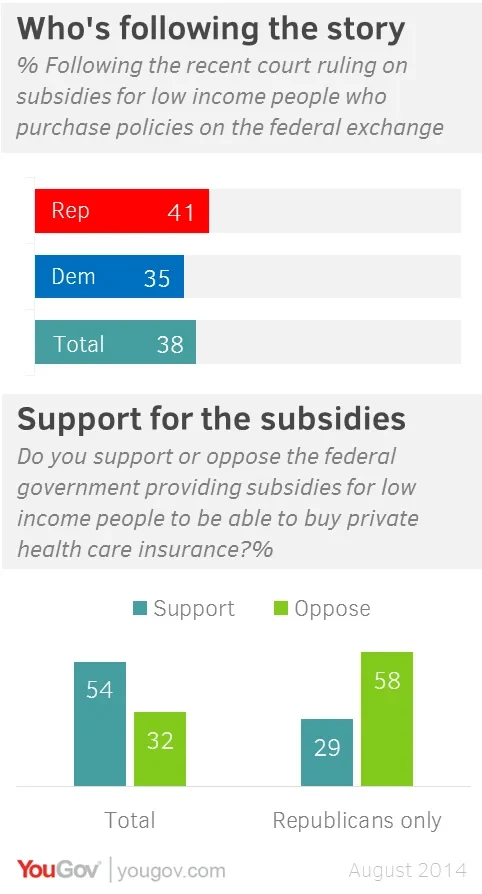
Republicans, who mostly oppose the law, have been somewhat more attentive than Democrats to the legal challenge.
Most Americans like the idea of federal subsidies for those with incomes too low to pay for coverage. However, a majority of Republicans oppose the subsidies. Less than a third of GOP voters favor federal subsidies to help pay for health care.
Since most people aren't following the case, the Economist/YouGov Poll described the ruling briefly in the question about attention to the D.C. Court's decision. Immediately afterwards, everyone was asked about the decision itself. There was more opposition than support for the ruling, with more being undecided than when asked the direct question about subsidies. Opinion was split, as has been the case on nearly every question about the law, largely according to a person's partisan identification.
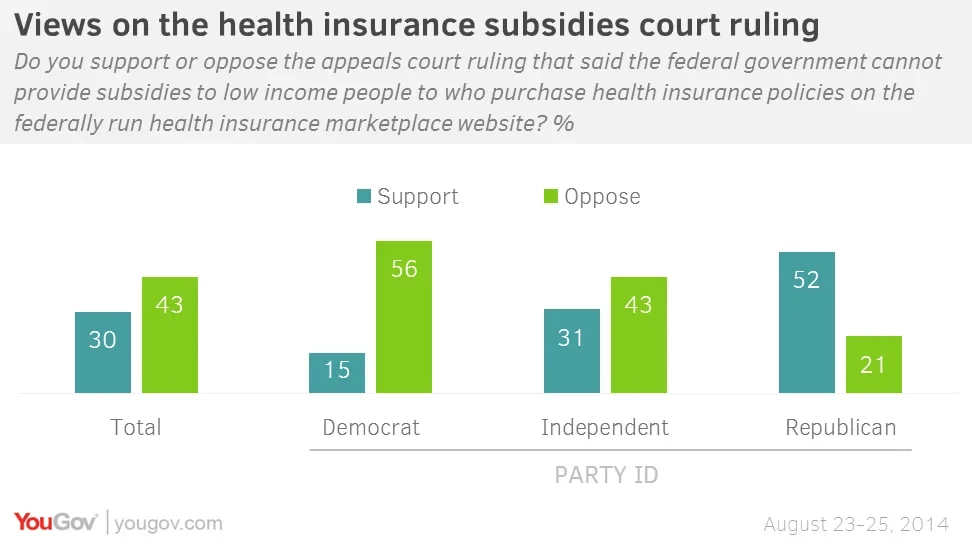
However, the group that has been following the decision (which more Republicans than Democrats are doing) shows a much closer division. 46% of those following the story support the D.C. Court's ruling, 47% oppose it.
The unchanging patterns of responses to questions about Obamacare reflect the deep division on what should be done about the law. The public today is sharply split, as it has been for the last few months, on whether the law should be repealed, or kept or even expanded. This week, 43% would repeal the ACA, 42% would keep it as it is or expand it.
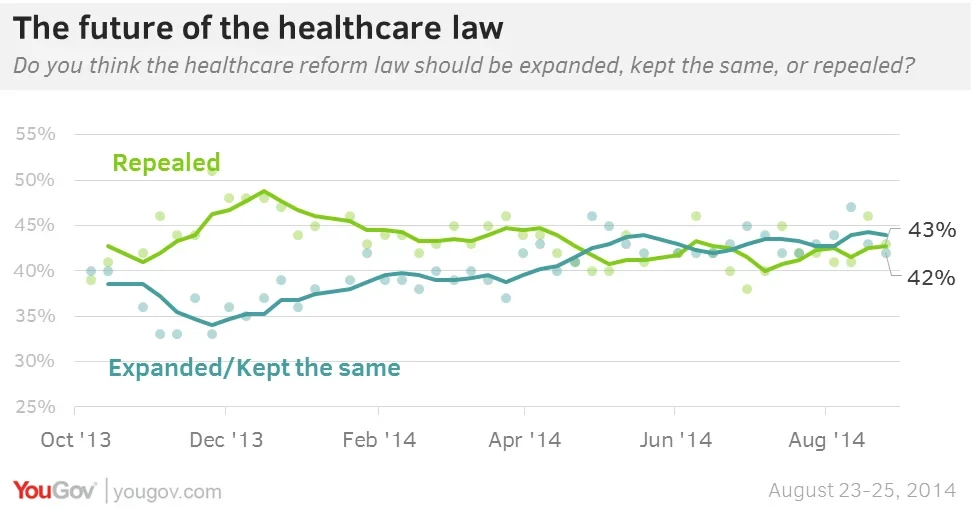
The partisan divide today is enormous. 81% of Republicans want the law repealed; 70% of Democrats do not.
Full results can be found here.
Economist/YouGov poll archives can be found here.
